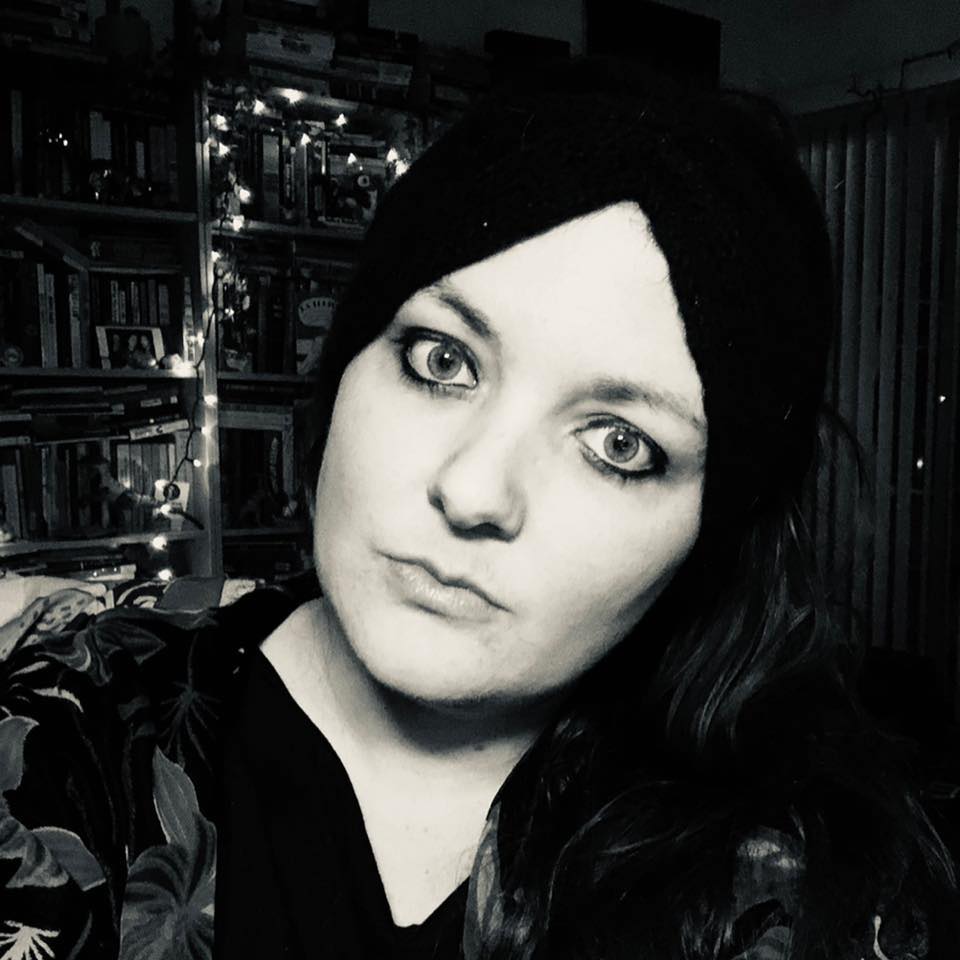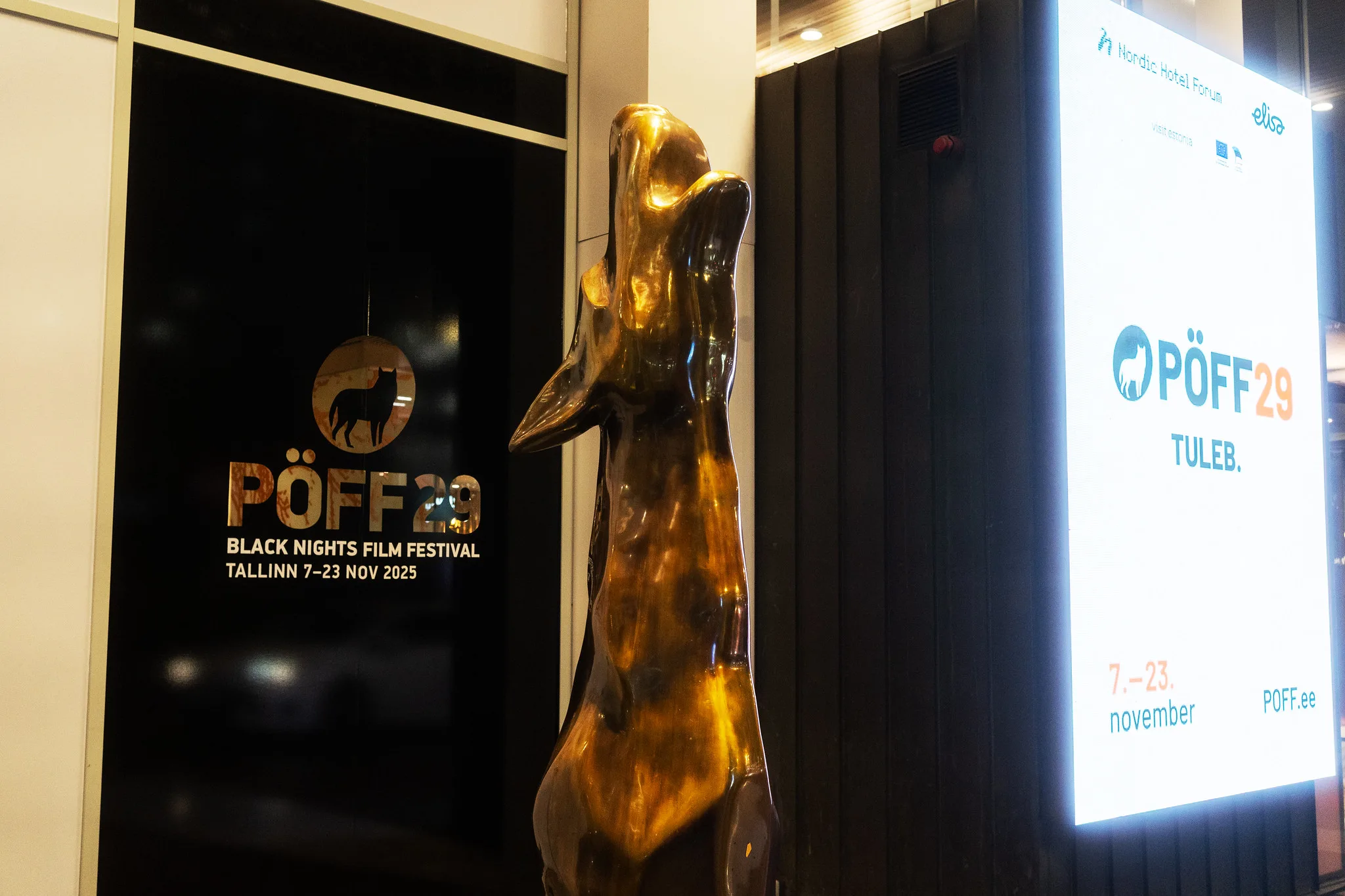In November, the time change hits hard, not just in places that observe Daylight Saving Time. The darkness seems to creep in earlier and earlier every day, everywhere, as we barrel towards the end of the year. The city of Tallinn, Estonia, embraces this darkness as a virtue. Each year in November, they host the Tallinn Black Nights Film Festival, also known as PÖFF, which just wrapped up its 29th year. I was privileged to attend this year and see the festival’s dark charms in all their glory with my own eyes.
Much of the festival’s action takes place at the Nordic Forum Hotel, a sleek modern hotel located on the edge of Old Town, a touristy area filled with quaint cobblestone streets that lead you to medieval fortresses and churches that trace back to the 14th century (and at least two really fantastic record shops). A large golden wolf statue by the front doors of the hotel, howling into the night, greets festival goers and guests alike.
It’s here that you not only pick up your badges and tickets for the festival, but also in the lobby and, especially, in the hotel’s breakfast room, where attendees, film critics, filmmakers, jury members, and festival staff alike mix and mingle, discussing all things cinema. If you are really brave, you can sign up for the winter swimming event, which takes festival attendees by bus to Tallinn Bay to dip their toes into the cold waters as a way of waking up and literally breaking the ice with their colleagues. Readers, I was not brave.
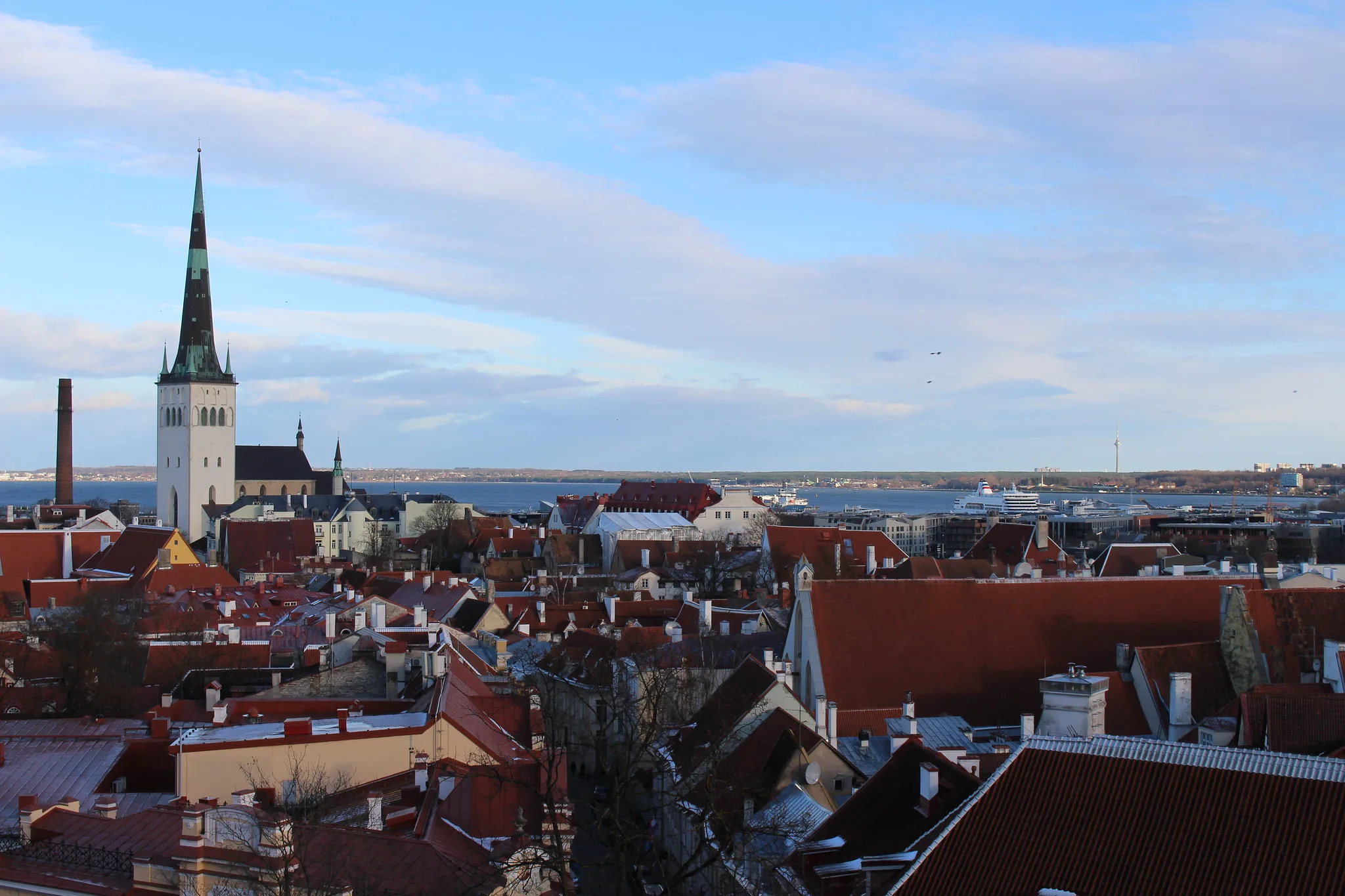
This year, the festival ran from November 7–23, and I arrived halfway through the festivities. Thankfully, they offer a great screening platform for accredited guests, so I was able to watch a dozen or so films before arriving in Estonia. Once there, I fought through the jetlag and watched another couple of dozen before the awards ceremony on the 21st, mostly at the nearby Apollo Cinemas multiplex, where the festival held its black-carpet premieres (and also sold specialty kettle corn, like pumpkin spice and black, PÖFF-themed varieties).
Keeping with the wolf motif, the festival has what may well be the coolest video logo I have seen at any festival I have attended. It starts with an image of the literal black night; white stars fall to the snowy ground, becoming wolves running through the tree-covered snow before morphing back into the light of the stars, which bounces back up into the sky, to form the festival’s neon wolf logo. It goes hard.
The festival is broken up into several competition categories—Official Selection, First Feature, Baltic Film, Rebels With A Cause, Critics’ Picks Competition, Doc@PÖFF International, Doc@PÖFF Baltic—along with two sub-festivals, Just Film and PÖFF Shorts. I watched a total of thirty-five films from thirty different countries. Although I tried to watch a few movies from each competition category, I only managed to watch a handful of the winners. I guess that is par for the course with a festival screening of over two hundred films!
I found the festival’s mixture of films, especially its emphasis on the Baltic region (Estonia, Latvia, and Lithuania), Eastern European, and Central Asian cinema (including my first-ever Kyrgyzstani action-comedy, Backstage Madness), to be incredibly rich in both stylistic filmmaking and thematic heft.
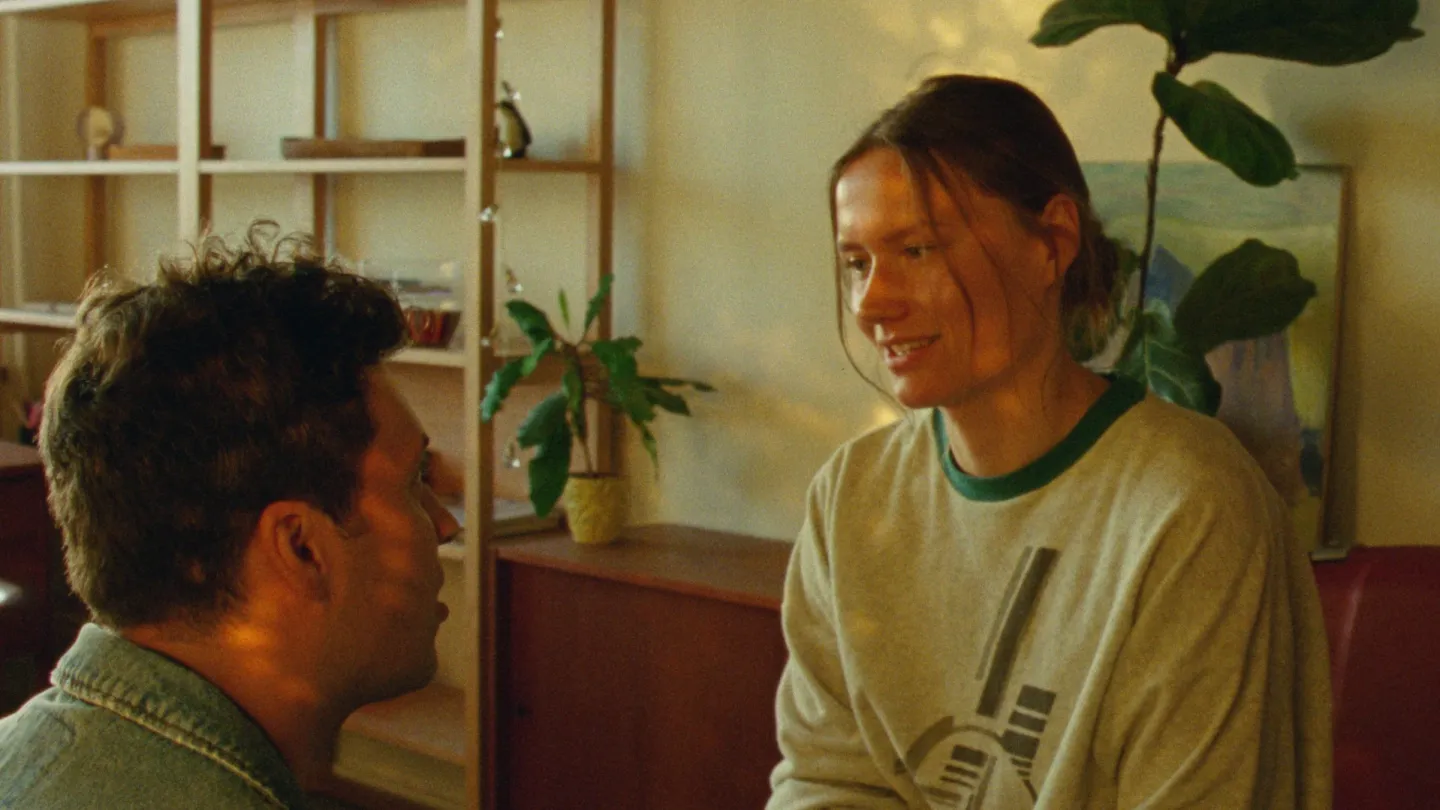
The ongoing invasion of Ukraine loomed large in several of the films I watched, including Lithuanian filmmaker Gabrielė Urbonaitė’s “Renovation” (which had its world premiere earlier this year at Karlovy Vary), which took home the Best Director award in the Baltic Film competition. This film did not charm me as much as it did others. Often compared to Joachim Trier’s “The Worst Person In The World,” (another film I am mixed on), it follows Ilona (Žygimantė Elena Jakštaitė), a woman on the verge of thirty, who has a change of heart about her boyfriend Matas (Šarūnas Zenkevičius), and all her plans for her life, really, after the apartment they have just moved into begins exterior renovations.
There, she befriends one of the Ukrainian construction workers, Oleg (Roman Lutskyi). Although the airy 16mm cinematography by Vytautas Katkus (whose own directorial debut, “The Visitor,” took home the Best Baltic Film award) is gorgeous, the film skirted far too close to cliché for my taste and never really delved as deeply into its political themes as I thought it would.
There were two other films that I watched that tackled the melancholy of a world at war and the horrors of rising fascism, with a much more complex and poetic manner: Harald Hutter’s “Leleka” and Maryna Nikolcheva’s “One Day I Wish to See You Happy.” Playing in the Rebels With A Cause competition, Hutter’s film was made in collaboration with star Olga Kviatkovska, whose character is a composite of her own story, along with several other Ukrainian artists living in exile in Paris.
She plays Sasha, a sculptor who is doing her best to continue working despite the constant trauma of war-related loss and displacement. When her grandmother, also named Sasha, passes away, she crafts a sculpture inspired by her strength and journeys from Paris to Kyiv with her Belgian friend Margaux (played by real-life artist and filmmaker Margaux Dauby) to bring the sculpture home. The journey of these two women, both physical and spiritual, becomes a slow cinema dreamscape rendered in gorgeous black-and-white 16mm, with flashes of luminous color, lulling you into its pace, while always keeping you a bit on edge as the dream veers towards the nightmarish reality of war.
This same sense of dreams and nightmares permeates Nikolcheva’s documentary, which screened in the Doc@PÖFF International competition, as the filmmaker aims her lens at her husband, Max, also a filmmaker, who has begun to drift into a midlife crisis. Halfway through the making of the film, the invasion of Ukraine splits the couple apart, forcing them to stay connected only through video calls. At times, the sheer amount of footage Nikolcheva films of her husband becomes too much, until you realize that filmmaking is their shared love language, one that can hopefully overcome the melancholy of depression and the miseries of war.
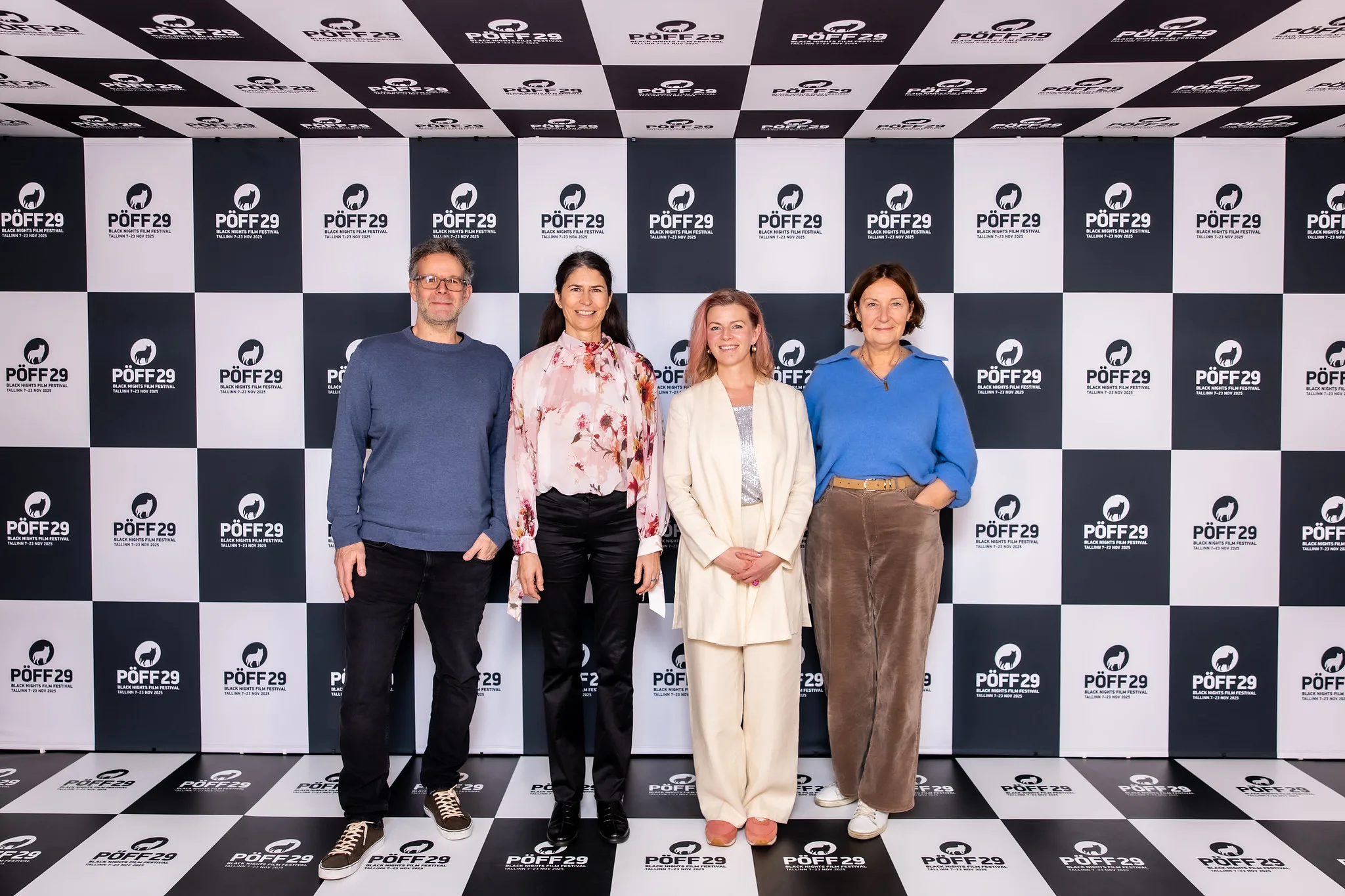
The Doc@PÖFF International competition was the only category in which I was able to watch every film, an accomplishment I found deeply rewarding and that also made the awards ceremony fun, because I actually had an opinion on the winners (all of which I agreed with). The Best Film award went to Karin Pennanen’s “Days of Wonder,” a heartfelt ode to her uncle Markku. This eccentric man dedicated his life to art for art’s sake, leaving behind a treasure trove of works ranging from paintings to collages to audio diaries.
The Best Cinematography award went to Max Golomidov, who lensed Estonian director Vladimir Loginov’s nocturnal city symphony “Edge of the Night,” an insomniac’s love letter to Tallinn. The jury awarded a special prize to Raisa Răzmeriță’s “Electing Ms Santa,” which follows the years-long journey of Elena Cernei, a do-gooder in a remote Moldovan village, as she pursues her dream of becoming the village’s first female mayor. It’s a deeply political film, but not rooted in the game of politics; instead, in a good heart, doing what she can for her community out of a sense of shared destiny with her fellow humans.
As a docs junkie, I really loved a few other films in this competition. In particular, I was impressed by Jadran Boban’s “The Feast of the Wolf,” which on its surface appears to be about conspiracy theories involving wolves being dropped onto their land by the government shared by the villagers living in the Croatian-Dalmatian hinterland, but is actually an angry anti-capitalist screed, where the real wolves are industrialists and capitalists who have put short-term monetary gain over the long-term well-being of their communities and the planet.
I didn’t manage to see any of the winners of the Doc@PÖFF Baltic competition, but I did see Latvian director Laila Pakalnina’s playful doc “Scarecrows.” I love her melancholic doc “Dream Land” from 2004, which outlined how resilient animals created a new ecosystem inside man-made landfills, so I was excited to see her latest. Once again teaming up with Māris Maskalāns, who was the DP on “Dream Land,” the two capture amazing footage of wild animals as they follow the “scarecrows” at Riga International Airport—rangers who keep the runways clear from deer and foxes and rabbits and even flying geese, swans, and storks, and rescue small birds from inside terminals and caught on fences. It’s a warm and joyful film, filled with gentle humor as it contemplates this ridiculous balance between man and beast.
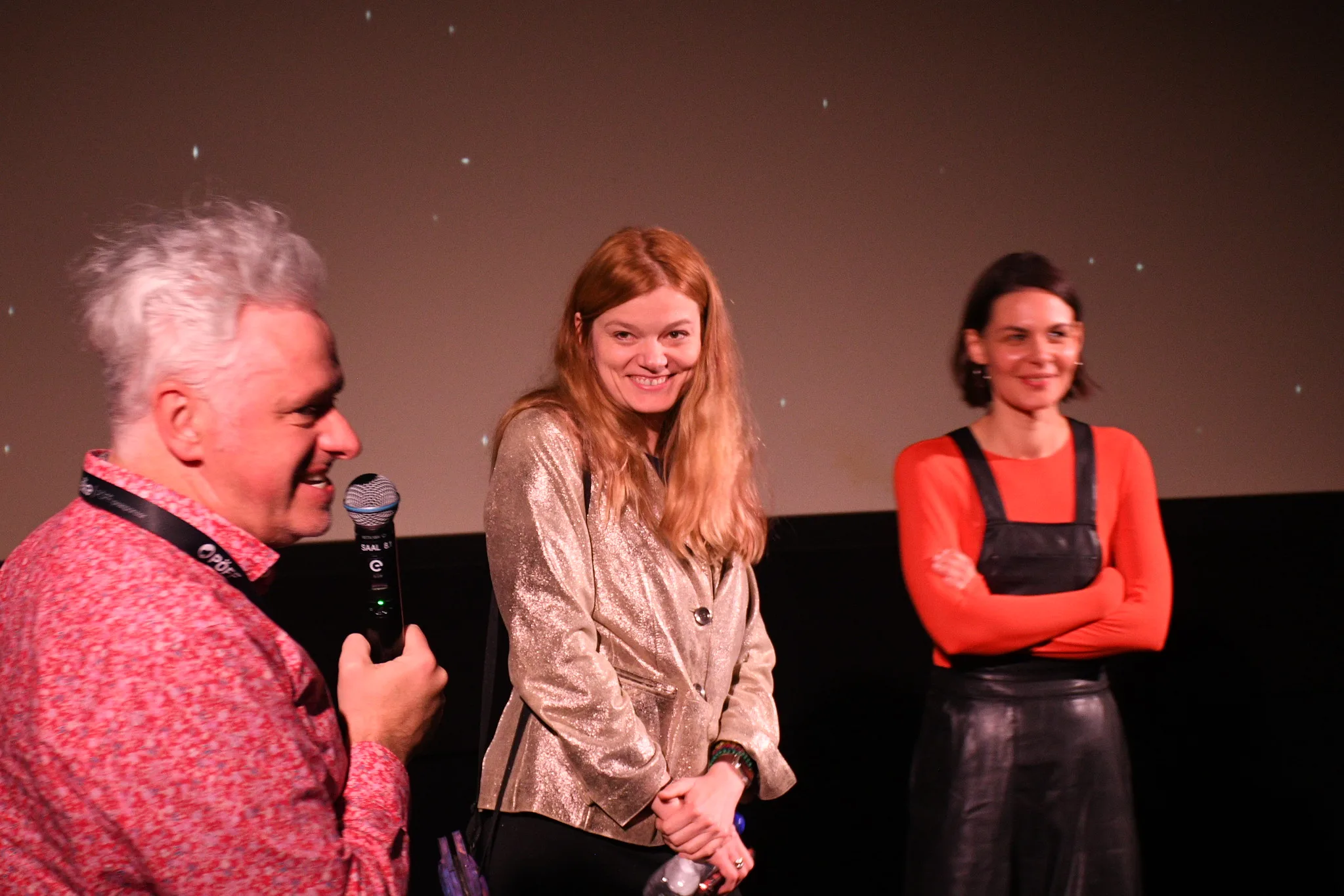
Although I saw the three big winners of the Baltic Film competition (“The Visitor,” “Renovation,” and “Becoming“), my favorite film of the bunch was also from Latvia: Alise Zariņa’s mordant “Flesh, Blood, Even a Heart.” Anchored by a stunning performance from Ieva Segliņa, who carries the film in all its humor and melancholy with ease, and edited with sly humor by Armands Začs (who also cut “Renovation”), the film follows Liv (Segliņa) as she comes to terms with the fact that her estranged, alcoholic father is dying. Not only must she navigate her own sticky feelings about their relationship, but also the labyrinthine, often Kafkaesque medical system and her partner Marcis’s (Gatis Maliks) midlife crisis.
Zariņa tackles this heavy subject matter with a wonderfully soft, often humorous touch. Not making light of the weight, but in a way that feels true to what death, dying, and estrangement are like, with the wisdom to know that the love is always there, even if it’s just in flashes of tender memories shared during the good times.
The Rebels With A Cause competition, which celebrates films that push the limits of cinema, awarded its top prize to the crowd-pleasing Belgian-Moroccan film “The Baronesses,” a co-directorial effort by Nabil Ben Yadir and his mother Mokhtaria Badaoui. Using humor and metatextual filmmaking elements, we follow the artistic reawakening of 65-year-old Fatima (Saadia Bentaïeb) after she discovers her husband has been living a double life in Morocco. Determined to live her life on her own terms, she decides to return to her teenage dream of playing Hamlet alongside her best friends, Mériem, Romaissa, and Inès. It’s joyful in its celebration of women of all ages, warm in its sense of community, and super funny to boot.
Although I saw quite a few films in the main competition, I did not see the big winner “The Good Daughter,” which took home the Grand Prix, the Audience Award, and the Best Actress award for star Kiara Arancibia.
In fact, the only competition film I saw that won an award was Richard Hawkins’s bleak drama “Think of England,” a stark period piece set on a remote British isle that recreates the film unit rumored to have produced pornographic propaganda films to boost morale during WWII. It took home an award for its production design. The two films I loved the most from the main competition were Csaba Káel’s “Hungarian Wedding,” a vibrant, ’80s-set rom com that is as lively as the dances at its heart, and Pascal Schuh’s “Interior,” which deploys its unique premise—a burglar uses a couch with a secret compartment to break into people’s homes, secretly record their private moments, then watches them with his partner, a doctor, who uses them to study human emotions—as a way to both critique German stoicism and also to act as a melancholic examination of modern romance, queer or otherwise.
Outside of the competition films, I also had to treat myself to a screening of Victor Sjöström’s silent masterpiece, “The Phantom Carriage.” I watched it with a new friend I made at the festival, Francine, who afterwards said she could still feel it in her bones, which is as apt a description of the film’s effect on the viewer as I’ve heard yet. It’s a film I’ve seen many times (and even programmed once at The Plaza in Atlanta), but one that deserves to be revisited as often as possible, especially in a place as cold and beautiful as Tallinn.
I will miss this lovely town, with its picturesque mixture of medieval buildings and modern sensibilities, and its sense of hospitality and humor. I am grateful for the six days I spent there, filled with good friends, lively conversations, and, best of all, great cinema.
